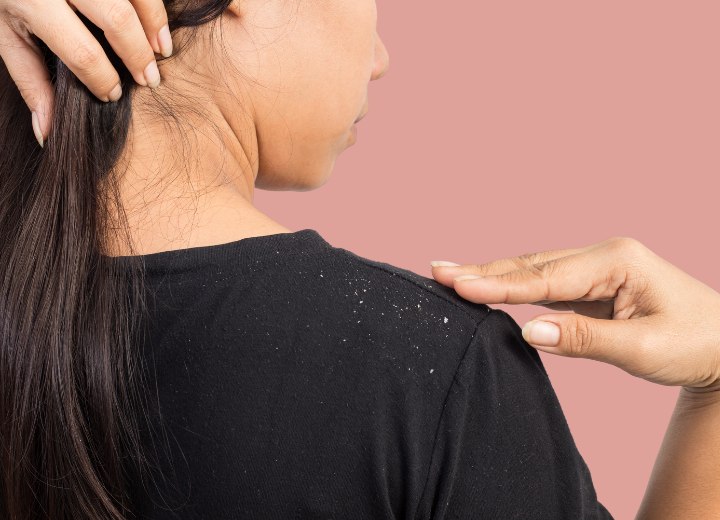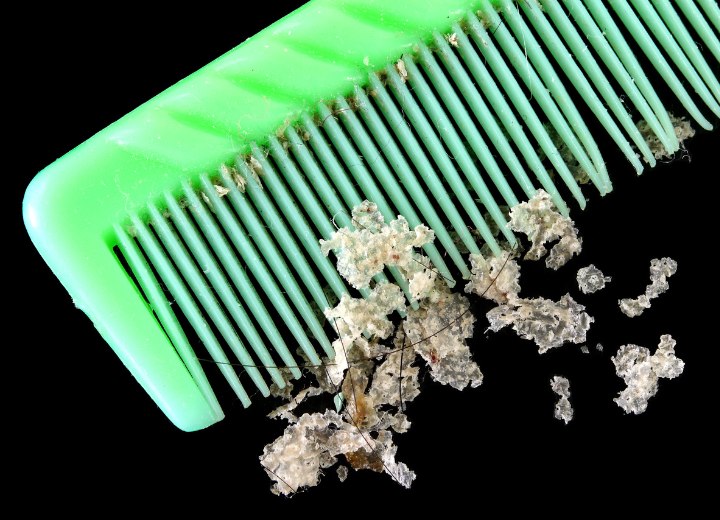Dandruff

Dandruff is probably one of the most common complaints people have about their hair and scalp. They have itching and flaking that shows up on dark clothing.
Most people, however, believe that what they are seeing is dandruff, when in fact it is just a matter of dry skin on the scalp. Actual dandruff IS common, but it looks very different when you know what you are looking for.
Unlike dry scalp flakes, which are generally small and powdery, dandruff flakes are larger and feel greasy as they are caked with sebum. Furthermore, dandruff is accompanied by intense itching, redness, and inflammation of the scalp. It is important to be aware of this irritation because excessive scratching of the affected areas can lead to injury of the scalp, as well as weeping sores and scabbing as they heal.
Dandruff is often confused with the flaking and itching caused by other skin irritations, such as psoriasis. However, while these share common symptoms, their causes are very different.

The exact causes of dandruff are a subject of much debate among the medical community. Recently, dandruff has been reclassified as a form of seborrheic dermatitis. Previously, it was believed to be caused by an overabundance of naturally-occurring yeasts in the scalp, called Malassezia.
Depending on who you listen to, dandruff has a variety of triggers and factors that can exacerbate the severity of the condition.
Treatment for Dandruff
Fortunately, dandruff can be controlled and the symptoms managed so that you can live without excessive trouble from the condition. Here are some simple guidelines:
• Use a dandruff control shampoo daily until your symptoms subside, then use it less frequently as needed to keep the symptoms under control. Usually, once the symptoms are under control, using the dandruff shampoo once or twice a week is sufficient.
• Keep the hair and scalp clean and as dry as possible. Avoid letting perspiration and excess oils remain on the hair and scalp, as these can be triggers for irritation. In the summer months, shower after periods of exercise or exertion that cause you to perspire in order to keep your hair and scalp clean.
• As difficult as it may be, avoid scratching the affected areas. There are a number of over-the-counter medications that can help control skin itching and are effective in managing dandruff itch. Just keep in mind that the risk of wounding the scalp and causing infection is sufficient to merit exerting as much self-control as possible.
©Hairfinder.com
See also:
Hair Diseases
Scalp Problems